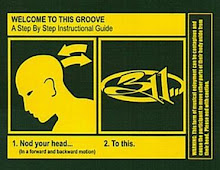This past May, and again in June after reworking the bill, the Senate and the House of Representatives voted overwhelmingly to approve The Food, Conservation, and Energy Act of 2008, a five-year, $307 billion farm bill. President Bush vetoed the bill, but his measure was only symbolic because the bill passed with enough voted to override his veto powers (80 to 14 in the Senate and 307 to 109 in the House of Representatives).
President Bush vetoed the bill (symbolically) because he wanted to impose a gross income limit of $200,000 above which farmers could not qualify for any subsidy payments. Bush said the bill "continues subsidies for the wealthy and increases farm bill spending by more than $20 billion, while using budget gimmicks to hide much of the increase." John McCain agreed with President Bush. He said "I would veto that bill, and all others like it that serve only the cause of special interests and corporate welfare."
Although the legislation is universally known as the farm bill, it actually directs far more money to feeding the poor than it does to helping farmers — about $209 billion for nutrition programs like food stamps, according to the Congressional Budget Office, compared with $35 billion for agricultural commodity programs. The bill also includes a $10.3 billion increase in spending on nutrition programs, including food stamps, as well as increases for rural development and land conservation programs.
The Council for Citizens Against Government Waste agreed with both Bush and McCain. They claimed that 60 percent of the payments would "go to the wealthiest 10 percent of recipients." That statement got me reminiscing to what McCain said about the proposed Bush tax cuts in 2000. He said "Sixty percent of the benefits from his tax cuts go to the wealthiest 10 percent of Americans–and that’s not the kind of tax relief that Americans need. … I don’t believe the wealthiest 10 percent of Americans should get 60 percent of the tax breaks. I think the lowest 10 percent should get the breaks." Yet, he voted for the plan anyway. Why are these people better than farmers? Why do they deserve tax breaks while farmers need to be capped at $200,000? McCain went on to say the bill aids large commercial farms with "an average net worth of $2 million," not small farms.
The net worth of a farm is the value of everything a farming business owns, less any loans or liabilities the farm incurs. Farming is an extremely expensive business and the overhead costs are enormous. There are plenty of farmers who farms have a net worth of over $2 million that struggle each year to turn a profit. These subsidies protect American farmers.
Bush claims that farmers are seeing unprecedented prices for their crops. That's true, but the cost of producing those crops is rising faster than the price per bushel. Wells Fargo & Co. estimates that the cost of farming an acre of corn has risen almost 47% over the last year, outpacing the 35% increase in the price of corn in the same period.
The Food, Conservation, and Energy Act of 2008 contains items that McCain considers pork barrel spending or earmarks. This refers to spending that is intended to benefit constituents of a politician in return for their political support, either in the form of campaign contributions or votes. Of course, McCain's running mate, Sarah Palin, knows all about pork barrel spending. This year she submitted to Congress a list of Alaska projects worth $197.8 million and Alaska ranks number one among all states, receiving an average of $506.34 from the government per citizen. I guess that's okay and a $700 billion dollar bailout for greedy corporate firms is okay, but $20 billion for America's farmers is unnecessary?
A New White House Curator: Missed the Peg
8 years ago

No comments:
Post a Comment